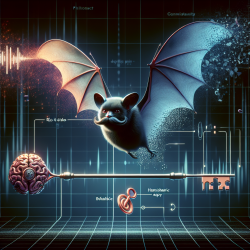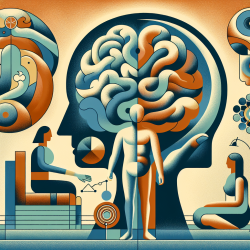In the realm of early childhood education, the development of self-regulatory skills is pivotal for long-term academic and personal success. A recent systematic review titled Physical Activity and Cognitive Aspects of Self-Regulation in Preschool-Aged Children sheds light on the significant impact that physical activity (PA) can have on the cognitive aspects of self-regulation among preschool-aged children. This review offers valuable insights for practitioners seeking to enhance their skills and encourage further research in this area.
The Importance of Self-Regulation
Self-regulation is a higher-order cognitive process that encompasses the ability to control one's actions, emotions, and thoughts. It plays a crucial role in a child's ability to focus, remember instructions, and manage impulses—skills that are essential for academic achievement and social interactions. The cognitive aspects of self-regulation include attention, working memory, and inhibition.
The Impact of Physical Activity
The systematic review analyzed six studies that focused on the relationship between PA interventions and self-regulation in preschoolers. The findings revealed that attention was the only cognitive aspect that consistently improved as a result of PA interventions. While working memory showed improvement in only one study, inhibition demonstrated a positive relationship with PA in 60% of the studies reviewed.
Attention
- Consistent Improvement: All four studies assessing attention showed a positive impact from PA interventions.
- Cognitive Flexibility: Activities stimulating the prefrontal cortex were particularly effective in enhancing attention.
Working Memory
- Mixed Results: Only one out of two studies reported improvements in working memory due to PA.
- Complex Activities Needed: The type of activity may influence outcomes; activities requiring complex motor skills were more effective.
Inhibition
- Inconclusive Findings: Three out of five studies found a positive relationship between PA and inhibition.
- Ages Matter: Older preschoolers showed more significant improvements, suggesting age-related differences in cognitive development.
Practical Implications for Practitioners
The insights from this review can guide educators and therapists in designing effective interventions that incorporate physical activity to boost cognitive development. Here are some strategies practitioners can implement:
- Diverse Activities: Incorporate a variety of structured physical activities that stimulate different areas of the brain.
- Ages and Stages: Tailor activities to suit the developmental stage of each child, focusing on age-appropriate challenges.
- Cognitive Integration: Design games and exercises that integrate cognitive tasks with physical movement to enhance both motor skills and cognitive functions.
The findings underscore the potential benefits of incorporating physical activity into early childhood education programs. By doing so, practitioners can help foster essential self-regulatory skills that lay the foundation for future academic success.
This review highlights the need for continued research into the specific types of activities that most effectively support cognitive development in young children. Practitioners are encouraged to explore these findings further and contribute to this growing field of study.










